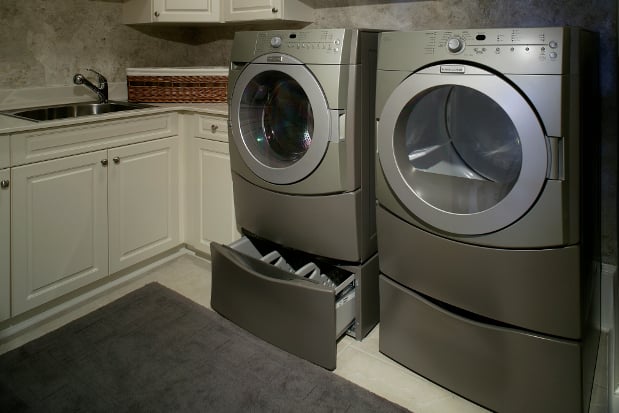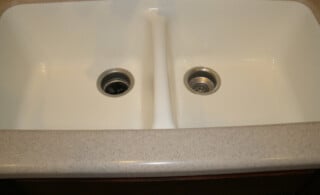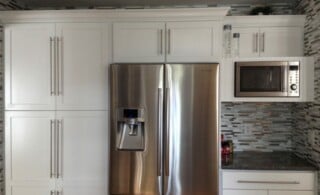
Most of us today are used to the buzz and whirr of electric appliances. They’re safe, easy to use, and with a simple plug-in, they’re instantly ready to go. However, due to their convenience, there is also a cost down the road: they guzzle a lot of energy. Most people assume it’s no big deal since electricity is so cheap anyway, but it’s not that cheap when you add up the total amount you’re expending to complete a simple task. Natural gas appliances, on the other hand, seem expensive at first but since they’re quicker and more efficient, they can actually save you money in the long run.
LPG or Go Natural?
They often come in two varieties: LPC (Liquefied Petroleum Gas) or natural gas. Both serve the same purpose, but they have different chemical properties. LPG contains propane, which can be compressed into liquid form and easily transported in a tank (it’s often used in grills but can be found anywhere). However, natural gas comes directly from the earth and is hardwired into your house through underground lines. Both are non-renewable resources, making them a bit more expensive, but since they both produce a flame and burn extremely hot while in operation, they allow machines to function at a much faster rate so they complete their jobs in no time.
Common Gas Appliances
The most common device is a water heater. When you run out of warm water, it’s probably because your pilot has blown out and needs relighting. Many gas appliances have a pilot light constantly running that acts as a primer and controls the flame size (though new models turn on the flame through electronic starters which is safer). But with a flame, water heaters can quickly warm the tank. Here are some other common gas-powered machines around the home:
- Dryer/Washer: Drawing air in through the burner, these units then distribute heat to the tumbling drum and cost less to operate since they use a quicker cycling time.
- Stove: The burners use actual fire instead of heated coils, allowing pans to warm up extremely fast, saving you a third of the time. Again, if pilot lights make you nervous, newer models use electric ignition. Plus, these stoves are easy to clean since you don’t have to work around and underneath curled coils.
- Fireplace: No more messy ash, unsafe sparks, or chopping wood. Just flip a switch to get instant results. Plus, with ceramic logs, the hearth still offers an authentic appearance.
- Refrigerator: Unlike electric models, these fridges don’t use Freon but instead hydrogen and ammonia water. Plus, they have no moving parts, such as compressors. But they use steel pipes instead of copper, which means they require expert experience for installation.
Ready to start your Gas Appliance?
Find ProsAnywhere, Anytime
Even if you have electronic devices, it’s always a smart idea to have a gas-operated generator around in case of power outage. But to avoid the hassle of electrical failure, you can always find a gas appliance replacement. Ovens, heat pumps, space heaters, pool heaters, you name it, it’s available. Plus, if you don’t want to use LPG, you can hardwire outdoor units directly to the house. Why not hook up a grill to the home, allowing it to heat up quickly? Plus, it’s handier than messy briquettes or propane tanks, which run out all the time. Hook up your exterior lights, ignite your fire pit and patio fireplace, or maybe even invest in a standup heating unit for those chilly summer nights.
Gas Appliance Repair
First off, if these devices aren’t properly installed or occasionally inspected, they could be dangerous. A big threat is when they’re left on but don’t ignite, which causes carbon monoxide poisoning. It can’t be smelled, tasted, or detected and therefore it builds up without notice. So make sure your equipment is checked annually (some come with warranties or service packages for inspection) and buy a detector for the house. Other gas appliance repairs could be a blown pilot light, a broken thermocouple, or a defective safety valve. Since fridges use steel pipes, they could rust and leak. And since these problems necessitate specific knowledge and experience, always hire an expert (doing it yourself is dangerous and illegal). But make sure the repairman is qualified with the Council for Registered Gas Installers, which requires by law that they respond in cases of emergency. Some areas even involve permits for installation, so make sure you hire a pre-screened professional to take care of any gas appliance repair.
 Garbage Disposal Cleaning: Show Your Garbage Disposal Who Is Boss
Garbage Disposal Cleaning: Show Your Garbage Disposal Who Is Boss  Undercounter Refrigerators
Undercounter Refrigerators  Green Appliances
Green Appliances  How to Fix a Leaking Fridge
How to Fix a Leaking Fridge  Cutting-Edge Kitchen Appliances
Cutting-Edge Kitchen Appliances 

Are You Familiar With This Topic? Share Your Experience.